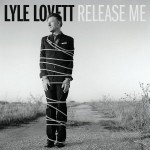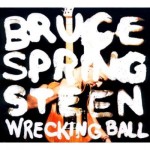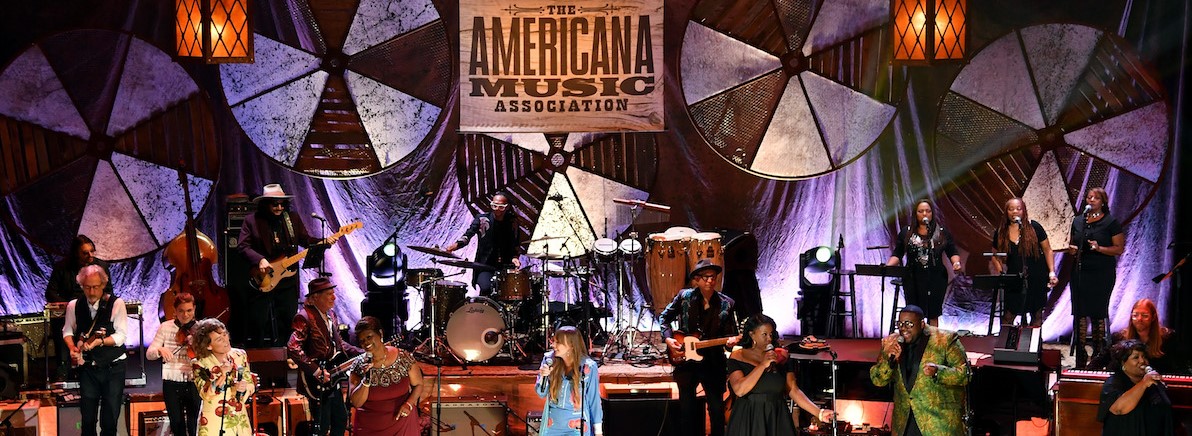Jon Latham delivered a great set for WMOT in Murfreesboro, Tennessee to encourage residents to support downtown businesses after a planned white supremacist rally wiped out business the previous weekend. In this interview with Americana Music News, he talks about the influence of Bruce Springsteen.
Tag: Bruce Springsteen
Reviews: Jason Heath, Jerry Reed, Mike + Ruthy, Stilson Greene
Quick hits in Americana, folk and country music:
Packed for Exile – Jason Heath and the Greedy Souls: When you hear that a band named itself after a passage in the Old Testament, you don’t expect the energetic, often raucous mix of folk and American found on Packed for Exile. There’s a lot of Bruce Springsteen’s Seeger Sessions here, songs with a social conscience and a dancer’s heart. The Springsteen connection isn’t exactly happenstance; Danny Federici’s son Jason plays accordion and organ with the Greedy Souls. Highlights include “Sacred Geometry,” “#1 with a Bullet” and “California Wine.”
The Unbelievable Guitar and Voice of Jerry Reed / Nashvillle Underground – Jerry Reed: This new Real Gone Music collection of Jerry Reed’s first two albums is one revelation after another. Before he became Burt Reynolds’ sidekick in the Smokey and the Bandit movies, Reed was already a fine guitarist, session player and songwriter.
Reed wrote “U.S. Male, a bit of bragadoccio that became a hit for Elvis Presley in 1968 and “Guitar Man,” a recurring musical element in Elvis’ 1969 comeback special. Both songs are on this collection.
Beyond those biographical hits are Reed’s efforts at country-flavored pop. The lyrics to “You’re Young” may make you gag – it seems that this young lady is just too good for this guy – but the production is terrific and sounds as fresh as the lyrics sound dated.
The package also includes Reed’s ” A Thing Called Love,” which became one of Johnny Cash’s big hits in 1971.
The NYC EP – Mike + Ruthy: At the heart of this husband-and-wife duo’s new EP is “My New York City,” a song written around unrecorded lyrics from the Woody Guthrie archives. I’m always left wondering how much Guthrie DNA is still in a song once it’s finished and married to a melody, but the harmony-laden results here are so pleasing that you won’t care. Other highlights: “Romance in the Dark” amd “Raise Your Glasses High.”
Young Lions – Stilson Greene: Young Lions began with a single song. Stilson Green wanted to record Shenandoah for his ailing father, who loved the song. That track grew into this new album, a highly personal effort that addresses family, friends and relationships.
There’s an appealing sincerity and simplicity throughout. Green talked with Leesburg Today about the origins of Young Lions. You’ll find the interview here. Favorite tracks: “When the Night Falls,” “You (A Song for Tammy)” and “Shenandoah.”
Music Producers Institute brings artists, fans together in the studio

Steve Fishell
5 Questions for Steve Fishell:
“Music Producers Institute brings students of recording and music fans right into their favorite artists’ master studio sessions. The premise is simple: the best way to learn about the recording process is to observe your favorite artist at work. Tuition is generally around $800 for a two or three day event and a majority percentage goes to the artist to cover their studio costs. Artists walk with the masters and attendees check off another “bucket list” item.”
2. Do most people enroll because they’re aspiring producers or because they want to watch their favorite artist work?
“The attendees are generally split 50%-50% between aspiring producers and fans. They are very respectful of the process and feel privileged for the chance to observe. We’ve never had one problem with interruptions in over four years of sessions. Nobody wants to blow it and get the boot!”
3. How does the presence of fans affect the recording process?
“Martie Maguire of the Dixie Chicks played mandolin and fiddle on Radney Foster’s March MPI sessions in Austin. I asked Martie if the attendees made her feel self-conscious and she said “I forget they were even there. Artists are performers and they prefer playing in front of a small group of respectful people rather than just to the four studio walls.”
4. You’ve had some amazing artists join you. What have been some of your best moments in the studio?
“The Del McCoury Band sessions were a highlight. Del and the band were cracking jokes all day long and still managed to record 17 songs in two days. In fact, on the last day they wrapped up the sessions around 6:30pm which is way early for most artists. Their virtuosity was simply mind-boggling to watch. The resulting album, “Old Memories: The Songs of Bill Monroe” was nominated for a Grammy last December.
“Poco let their entire class play percussion on one song and Todd Snider had his class sing harmony vocals on a track. Anything can happen at an MPI session.”
5. The great Duane Eddy has a session coming up. How would you describe his contributions to popular music and how can folks see him firsthand?
“Guitarist Duane Eddy – a member of the Rock and Roll Hall of Fame – influenced everybody: The Beatles, Bruce Springsteen, Creedence, the Ventures, Mark Knopfler. John Fogerty calls him “the first rock and roll guitar god.” Our MPI session June 22-23 marks the first time Duane has ever opened his studio doors to the public. He’s one of the nicest people on the planet so it promises to be a lot of fun. Also on the session are steel guitar session giant Dan Dugmore and legendary musicians Spooner Oldham and Richard Bennett. These sessions will also be special because the resulting tracks will be included on an album benefitting the Country Music Hall of Fame. All attendees will be thanked by name in the liner notes. To learn how to attend go to www.musicpi.com or call MPI at sessions@musicpi.com.”
Lyle Lovett at #1, chart debuts by Andrew Bird, Cuff the Duke, Joe Pug
 Lyle Lovett’s Release Me remains in the top spot on the Americana Music Airplay Chart, with Justin Townes Earles’ Nothing’s Gonna Change the Way You Feel About Me surging into the second position.
Lyle Lovett’s Release Me remains in the top spot on the Americana Music Airplay Chart, with Justin Townes Earles’ Nothing’s Gonna Change the Way You Feel About Me surging into the second position.
New to the top 10: Bruce Springsteen’s The Wrecking Ball at #8 and Ray Wylie Hubbard’s The Grifter’s Hymnal at #9.
New to the charts this week: Andrew Bird’s Break It Yourself (#38), Cuff the Duke’s Morning Comes (#39) and Joe Pug’s The Great Despiser (#40.)
Review: Bruce Springsteen’s “Wrecking Ball”
 by Terry Roland
by Terry Roland
Bruce Springsteen’s Wrecking Ball is the antithesis of his nearly 30 year-old Born in the U.S.A. As a writer, he has always highlighted the dark edges and ragged truth found in an America that has more kinship with John Steinbeck and Woody Guthrie than Ronald Reagan.
While this earlier classic was in many ways just as dark as Wrecking Ball, it still held a hopeful and sometimes nostalgic view of America even while he sang of wounded vets, the decline of his hometown and dancing in the dark. But with Wrecking Ball, there is no nostalgia. There is only the anger of our present circumstances. The songs illuminate how we got here.
The opening track, “We Take Care of Our Own,” is a clear statement of the times and an answer to the arch-conservative movement of today embodied in The Tea Party and the current Republican field of presidential candidates.
It’s an open call for personal and political compassion as a fundamental ideal, a reflection on what it means to be patriotic and ultimately, what it means to be an American today. “Easy Money”and “Shackled and Drawn” contrast the plight of the rich and the poor alike in today’s economy.
One of the most compelling songs on the album is “Death To My Hometown,” which rings out with Celtic anger and a punk-like energy. Again, it stands in defiant contrast to the surrendered despair of “My Hometown,” from the Born in the U.S.A sessions.
In terms of being The Boss, Springsteen has always been the front-of-the-pack when it comes to narrative storytelling. This album doesn’t let us down. After “We Take Care of Our Own,” which serves as a kind of foreword, the stories unfold from anger to sadness to depression, and finally emerge with optimism on “Land of Hope and Dreams,” which borrows heavily from the song “Bound For Glory.,” leaning on the refrain “This Train” to deliver his own rock and roll sermon of faith, straight from the First Church of E-Street. The plus on this one is the late Clarence Clemons saxophone sailing in like an angel. It’s an apt tribute one of the great musical partnerships of American history.
Ultimately, the strongest musical influences and reference point of this album are the folk music of the ‘40s and ‘50s and the civil rights movement of the ‘50s and ‘60s. This album is a clear call to return to that kind of unity. Like his entire body of work, Springsteen never seeks easy answers to his hope and faith in God, country and his fellowman, but instead asks us to take a clear-eyed look at our own despair and to find the will to return to a patriotism based on truth, reality, compassion and humanity.
Charting: Justin Townes Earle, Bruce Springsteen, Todd Snider
 Lyle Lovett’s Release Me shot to the top of the Americana Music Association radio airplay chart, edging out Darrell Scott’s Long Ride Home by just seven spins.
Lyle Lovett’s Release Me shot to the top of the Americana Music Association radio airplay chart, edging out Darrell Scott’s Long Ride Home by just seven spins.
New to the chart: Justin Townes Earles’ Nothing’s Going to Change the Way You Feel About Me Now at #11, Ray Wylie Hubbard’s Grifter’s Hymnal at #22, Todd Snider’s Agnostic Hymns and Stoner Fables at #25, Bruce Springsteen’s Wrecking Ball at #31, Steel Wheels’ Lay Down Lay Low at #34 and Lucero’s Woman & Work at #38.
